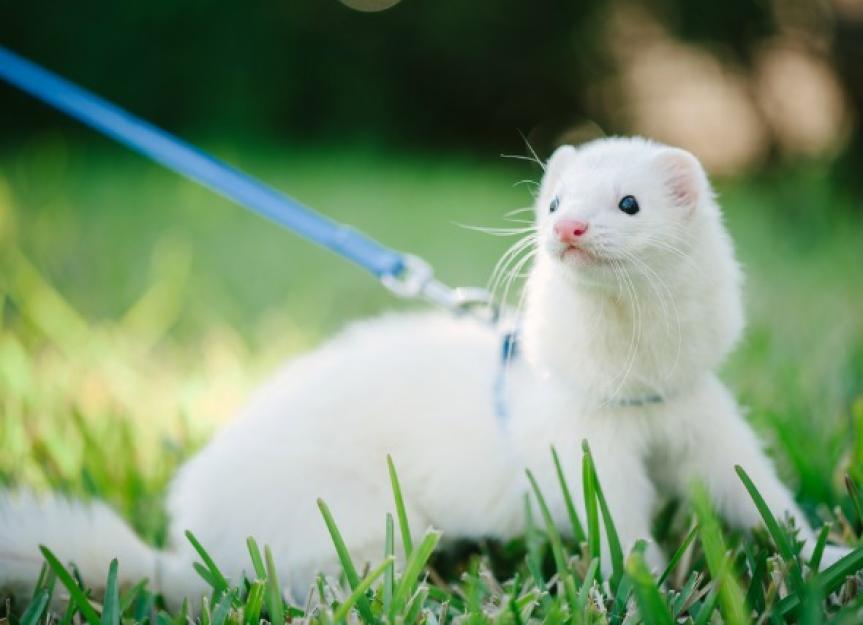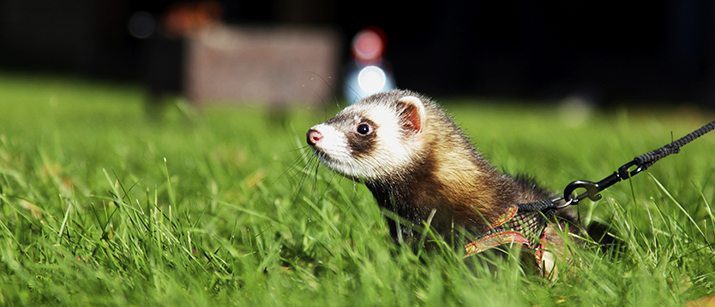
ferret training
Ferret training is an interesting and exciting activity, because these animals are very intelligent and sociable. Of course, these are not dogs, but it is quite possible to teach a ferret a few funny tricks and make him a comfortable companion.

Contents
When to start ferret training
This is the first question ferret owners ask themselves (and others). The answer is simple: as soon as possible.
The sooner you start training a ferret, the faster and easier it will learn the rules of the hostel, get used to you and remember the commands.
Keep in mind that it is more difficult to train an adult ferret than a cub, especially if the animal had other owners before.

Which ferret training method to choose
In the entire civilized world, the only acceptable method of animal training is positive reinforcement. Ferret training is no exception.
The essence of the method of positive reinforcement in the training of ferrets is that every correct action of the animal is encouraged. And as a reward (at least at the first stage), it is more convenient to use a treat.
Ferret training treats can be purchased at the pet store or you can make your own. It is important that the pieces are small – literally “one tooth”.
Positive reinforcement has proven to be very effective in making ferret training enjoyable for both parties and encouraging interest from the student.

Ferret Training: Basic Commands
As with any animal, an important rule applies to ferret training: commands should be short, clear, and always sound the same.
What commands can you teach a ferret? As a rule, the owners choose the following teams:
- To me.
- Place – for the ferret to run to the cage or to the house.
- Somersault – somersault.
- Serve – the ferret stands on its hind legs.
- Up – jump.
- Forward – overcoming obstacles.
However, you can not stop there and come up with your own tricks or even a small performance to entertain yourself and entertain guests.

Basic principles of ferret training
When training a ferret, you must be guided by the following principles:
- Don’t take on everything at once. Teach your ferret one command before moving on to the next.
- Classes should be regular, but short. It is better to train a ferret 2 times a day for 5 minutes than 1 time per week for 1 hour. If the ferret gets bored with the activity, he will stop listening to you and lose all interest in learning.
- Ferret training treats should be part of the daily diet. Do not overfeed the animal.
- At the first stage, in order to interest the ferret, it is better to use your favorite, strong-smelling treat, and not just regular food.
- Alternate difficult tasks with easy ones.
- End the lesson with an easy and enjoyable trick for the ferret.
Remember that if a ferret behaves “badly” or “incorrectly”, this is most likely the result of poor health or insufficiently good conditions of detention, improper care.
If you get angry with a pet, he will not correct himself, but will only get scared and begin to resist or run away. Because of this, ferrets are sometimes called “untrainable”, but the problem is more often in the person, not in the ferret.
Therefore, the main task is to provide the ferret with decent living conditions. In this case, the ferret will feel great, willing to communicate with you and show willingness to cooperate.





